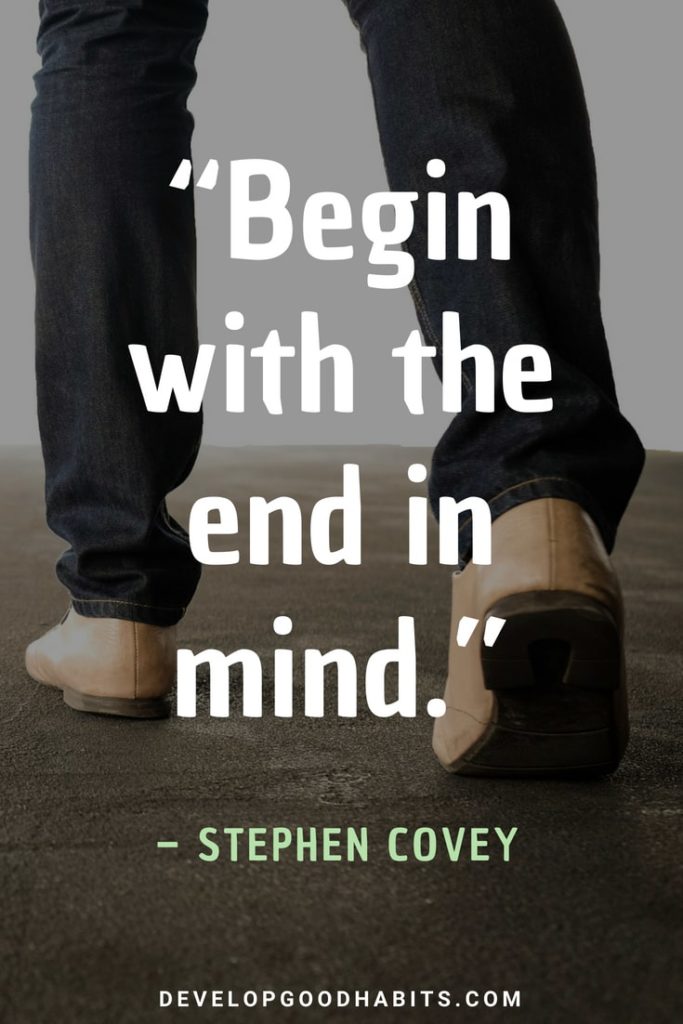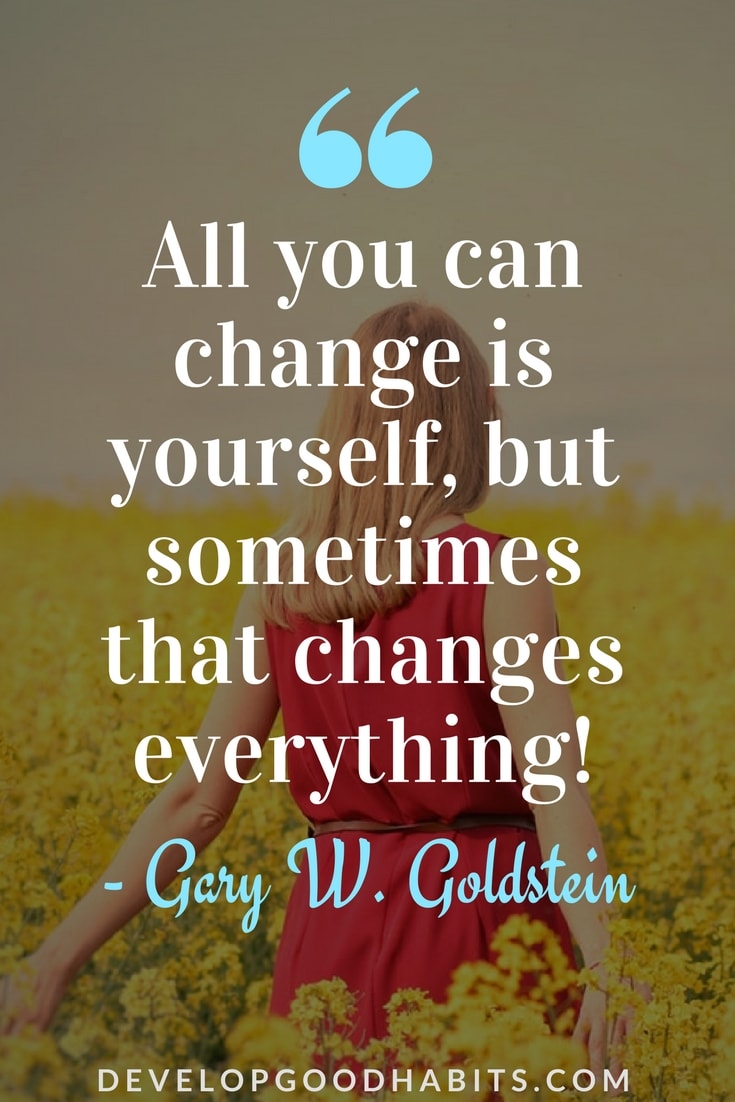The first thing that comes to mind when I think of being proactive is the NYC firefighters on 9/11.
They embody the idea of being proactive. They took it upon themselves to think strategically without wasting any time, they didn’t let feelings of being overwhelmed impact them, and they just went for it when they were faced with an unprecedented situation.
They were faced with a huge disaster, and each one of them made the decision between fight and flight. They didn’t sit back and watch the emergency unfold, they used their training to take charge of the situation and regain control.
On a much smaller scale, we can be more proactive in our everyday lives to accomplish more of what we want.
Similar to our articles on a growth vs. fixed mindset, people who are proactive are always seeking out new opportunities in life to learn, grow, and develop themselves so they can continue to improve, no matter what their age is.
So in this article, we are going to talk about the difference between being reactive and being proactive and look at the benefits of taking on a proactive attitude. Then we are going to look at 6 habits you can adopt to be more proactive in your life.
Let’s get started.
What Is the Difference Between Being Reactive and Being Proactive?
There are several aspects of life that are impacted by your proactive or reactive tendencies. In short, someone who is proactive has a certain attitude towards the world that allows them to take it on.
Being proactive requires one to accept responsibility for their life and take the initiative to change things as they deem necessary. Rather than allowing their circumstances to act as the driving force of their choices, people who are proactive live by their values and make their decisions accordingly.
People who are proactive act instead of wait for things to happen. They project themselves into the future and do things today that will benefit them tomorrow.
On the other hand, people who are reactive don’t take the initiative in situations. They let external factors lead the way. They take the back seat and react to things that are happening rather than trying to predict what’s going to happen in the future.
And, similar to those who don’t take responsibility for their life and actions, reactive people look to external factors to blame when things are going wrong rather than adopting an, “I can fix that” attitude.
Let’s look at some differences in the mindsets of these two types of people:
Proactive:
Reactive:
So what does this look like in the corporate world?
Reactive vs Proactive in the Corporate World
On an everyday basis, people who are reactive do the work they’re assigned and then sit around and wait for their next task to show up on their desk.
Alternatively, proactive professionals look for ways to improve their work and seek out opportunities to grow within their career.
When it comes time for a promotion, who do you think will get more consideration–the person who sits back and waits for assigned tasks, or the person who is a “go getter” and takes initiative to seek out and overcome change and keep up with the evolving world?
Think about how businesses as a whole need to be proactive in order to stay afloat. I’m sure you remember the popularity of flip phones back in the early 2000s.
What if one of the companies that made these phones figured that their business was doing great, so there was no need to make any changes in the upcoming years. Do you think that business would still be booming?
No, companies had to be proactive in staying ahead of the game and consistently uncover the next “bigger and better” product.
Being reactive and being proactive have one main difference: proactive people react before a situation occurs, therefore preventing an issue from ever arising. Reactive people wait until after things have gone downhill and then have to scramble to pick up the pieces.
Oftentimes, reactive people can see a problem on the horizon that they know they could step in to prevent, but because the problem hasn’t led to any damage yet, they choose to ignore it.
And sure, it takes energy and a lot of thinking and strategizing to be proactive, making it easier to wait for problems to arise and then dealing with them as they happen.
However, once those problems do come up, it’s a lot messier to deal with than it would have been to do the relatively small amount of work to prevent it.
Think of the person who spent years smoking without experiencing any serious side effects. While they know they’re causing damage to their body, they value the sensation they get from smoking over the potential long-term risks.
While a big problem may be brewing, it’s not here yet so they continue to smoke. A few years down the road, they develop lung cancer. They saw this coming and could have prevented it, but because they hadn’t been faced with the consequences yet, they gave in to this unhealthy impulse.
This same sequence of events can be translated into the corporate world. Not too long ago, every day at work was a race to the finish line for me.
I was bombarded with tasks all day, completely overwhelmed, and as soon as I got home, I would start dreading the next day.
I didn’t feel like I even had time to take a step back and look at the bigger picture of the problem: I had taken on more than I was ready to handle.
All day, every day, I was reacting to other people’s problems that needed to be solved and I was in no position to solve them myself. I was heading full speed ahead to becoming burnt out.
It wasn’t until I decided to be proactive by taking charge of my time that I gained a better grasp of my job. I started by setting aside ten minutes every morning to create a strategy for the day and prioritize everything that needed to get done.
Once I did this, the little problems that I faced all day that had been adding up to a very stressful work situation were largely eliminated in exchange for sacrificing just ten minutes every morning to get myself together.
I’ve decelerated the rate at which I’m heading toward losing my mind and I’ve regained control over my professional life.
The truth is, problems will do one of two things: they will either manifest until they explode, or they can be resolved while they’re still manageable.
Think of how something in your life could be prevented with a proactive attitude. Do you see a little problem that could turn into a big problem in the future? Or, is there an opportunity that you could be taking right now but instead you’re sitting back and waiting for it to come to you?
There are many examples of instances in which being proactive vs. being reactive can dramatically change the outcomes in your personal and professional lives. Let’s take a look at some habits you can adopt to be more proactive in your life and reap the benefits of this frame of mind.
6 Habits to Be More Proactive in Life
1. Anticipate Problems
Think ahead as much as possible to address problems before they really manifest into large complications. There are a few ways you could do this.
If you’re in a service role of some sort, you may take the time to conduct customer satisfaction surveys to uncover some issues that you may not even be aware of and prevent them from ever becoming a large problem.
In other industries, you could take a step back to analyze problems that have come up in the past with tasks you do on a regular basis and modify your approach to secure these areas that are prone to issues.
You can also stay ahead of potential problems by taking the time to envision your projects and researching how other people may have successfully completed similar projects (or what mistakes people have made) in the past.
On a smaller scale, you can devote time every day to reviewing your to-do list to see if there are any tasks that seem to carry over from day to day.
Typically, if there is a task that you’re avoiding, it has the potential to become a problem in the future as the deadline is nearing. Waiting until the last minute to do things nearly always leads to stress and complications that could have been avoided.
2. Find Solutions to Problems
If you’re facing a problem that you didn’t anticipate, you can still be proactive in finding a solution. Start by brainstorming and troubleshooting the problem to identify when and how it started so you can quickly address the underlying cause.
Practice getting comfortable with making decisions and committing to a plan. From here, you will be able to determine the steps you need to take in the future to prevent problems from happening again or a plan to effectively handle the problem the next time you’re faced with it.
3. Plan
Tackle your day by making a plan rather than waiting for things to happen. This will help you maintain focus and not get sidetracked with irrelevant tasks.
Get into the habit of creating a to-do list at the end of every day for the things you want to focus on the following day. Consider the things that you’ve done that day compared to what you had planned on doing and prioritize your upcoming tasks by ranking them according to their importance.
This way, you will finish each day knowing what your priorities are for when you return, and you can get right to work with your most important tasks first thing in the morning.
Remember to set deadlines to help you plan and manage your priorities and break down large projects into smaller, manageable objectives.
Your to-do list will offer you an itemized look at what you should be working on to move closer to achieving your larger goals. It helps keep you focused and on track while reducing the risk of forgetting to do something important.
It’s important to have a grasp on your current commitments so you can assess whether or not you can take on additional tasks at any given time.
Creating SMART goals is essential when planning. The video below provides a quick overview of SMART goals and shows three examples for each of the seven areas of your life.
4. Work Efficiently
Developing methods to help do your work more efficiently can help you be proactive. Some examples of this could be:
Working efficiently will help you be proactive because it will give you the time you need to focus on working intentionally toward your goals. The less time you have to spend looking for lost files or explaining how to do something to a coworker, the more time you will have to plan for the future.
5. Follow Up and Be Persistent
Following up and being persistent are critical factors of being proactive. It requires willpower to follow up on the things that will benefit you in the long run, especially if you’re not receiving a response or you’ve already gained the short-term benefit of the situation.
Reaching back out is required if you’re still waiting for a response after attempting to schedule a meeting, you haven’t heard back after a successful interview, or you’ve sent an important email that hasn’t been acknowledged.
Not only will this show the other person that the issue at hand is still relevant and important to you, it will also prompt them to take some sort of action to help you.
It’s also important to follow up with clients or customers you’ve worked for to maintain a positive relationship and secure future business. You can’t leave your clients high and dry as soon as they’ve paid for your product or service.
You need to further cultivate that relationship, whether that’s through email, social media, or picking up the phone and calling.
Following up when you’re going after the things that you want will show others that you’re taking initiative and you won’t quit until you’re successful.
6. Learn to Adapt
Businesses are constantly changing, and your ability to adapt to unexpected circumstances affects your capacity to be proactive.
When you’re facing change, make sure to analyze and understand why the change is occurring, what the potential impacts of the change are, and how you have to adjust to move forward effectively.
In order to be especially proactive, learn how you can communicate the change to others and teach them how to adapt as well. Relay a sense of understanding about why the change is taking place and what its benefits are.
And sometimes you have to take a step back and examine the big picture. Take a time out to re-evaluate your work or your strategy and regain the energy that you need to move forward.
If you’re handling an unresolved conflict with a family member, friend, or co-worker, instead of talking in circles, take a step back. Look at the big picture.
Look at the potential for misunderstanding. However you’ve been handling the conflict up to this point has not been effective in solving the problem. So take the time to come up with a new approach or look at the conflict with a fresh set of eyes.
If you’re able to do this, you may even recognize your own fault in the situation and fix it accordingly.
Final Thoughts on Reactive vs Proactive
It’s hard to go wrong when you plan ahead of time, you develop problem-solving skills, and you effectively communicate with your team.
When you become more proactive, you will recognize the influence you have over your own circumstances and gain control over your life.
Adopt these six habits to become more proactive in your life so you can reap the benefits of living the life that you want.
And if you're looking for more resources to help you become more proactive in your life, be sure to read these articles:
- 13 Steps to Write & Set SMART Goals
- Self Empowerment: 9 Tips to Empower Yourself
- How to Expand Your Circle of Influence in Your Life
- How If-Then Plans Helps You Stick with a New Habit
- 25 Long Term Goal Examples for Your Career & Personal Life
- 15 Songs About Waiting for Something (or Someone) Important
Finally, if you want to take your goal-setting efforts to the next level, check out this FREE printable worksheet and a step-by-step process that will help you set effective SMART goals.

Connie Mathers is a professional editor and freelance writer. She holds a Bachelor's Degree in Marketing and a Master’s Degree in Social Work. When she is not writing, Connie is either spending time with her daughter and two dogs, running, or working at her full-time job as a social worker in Richmond, VA.





